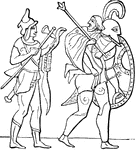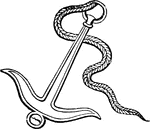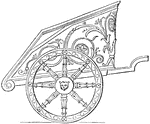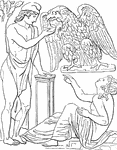Clipart tagged: ‘aenid’

Aeneas and Ascanius
"The following cut, taken from one of Sir W. Hamilton's fictile vases, and representing Aeneas followed…

Anchor
The anchor used by the ancients was for the most part made of iron and its form... resembled that of…

Chariot
"Arms and a chariot are here assigned to June through not properly a warlike goddess. The idea itself,…

Ganymede and Eagle
"From an ancient sarcophagus, represents Ganymede giving drink to the eagle, or bird of Jobe, and Hebe…

Juno
"The following cut is taken from the Vatican Juno found in the ruins of Lorium." — Anthon, 1891




